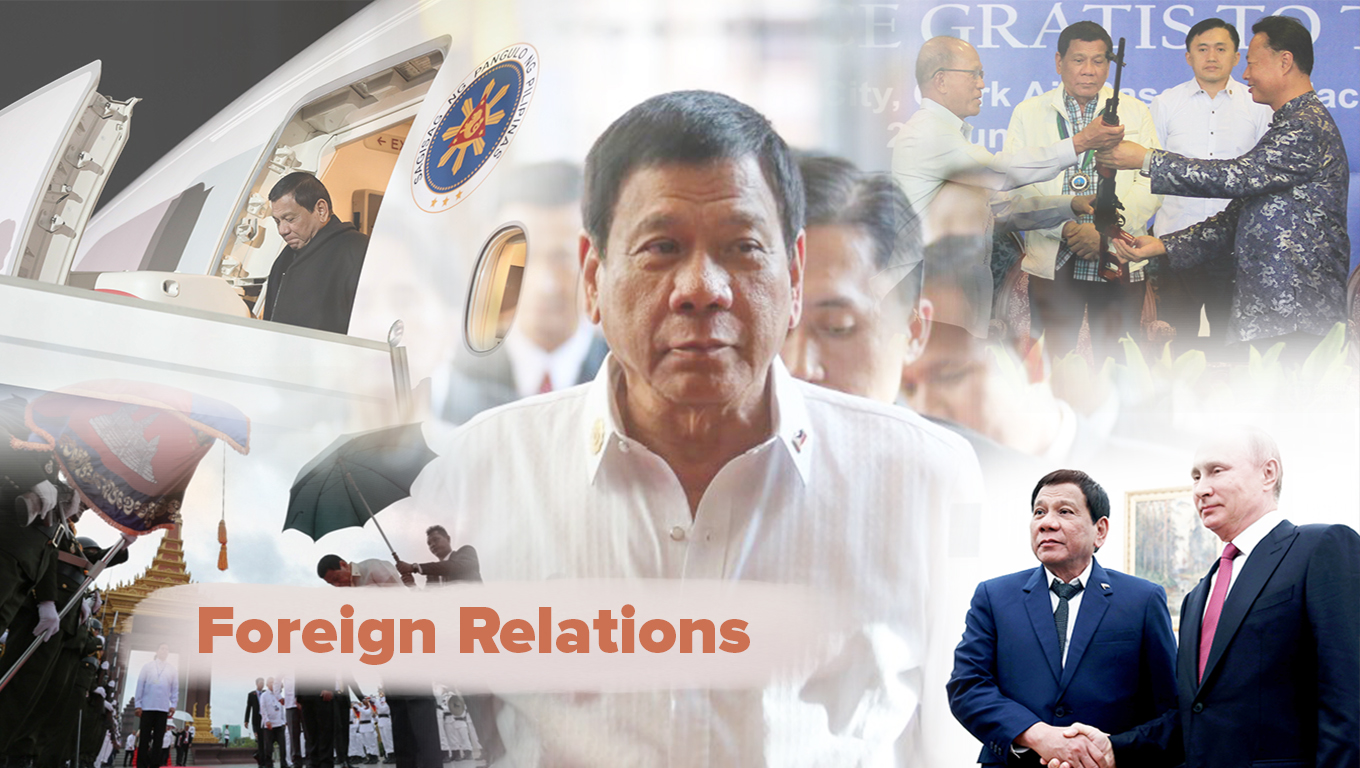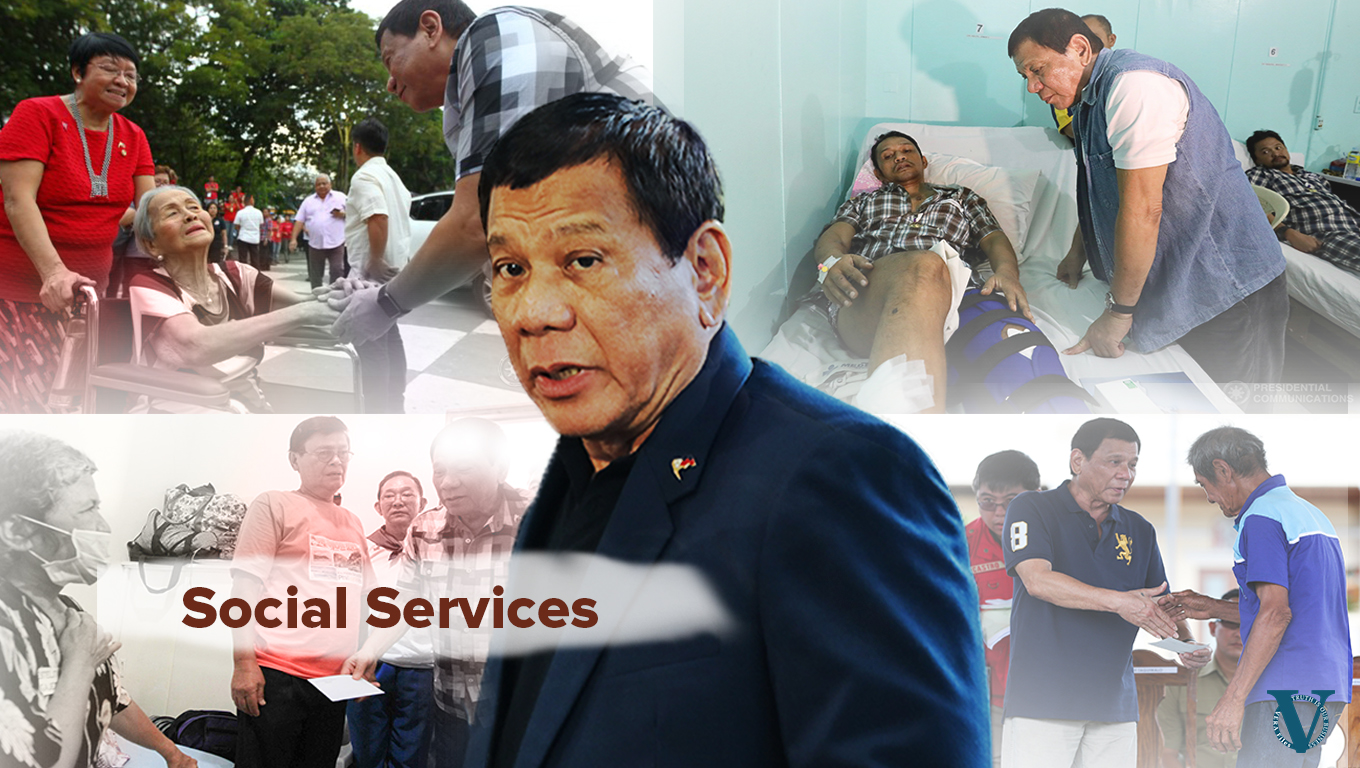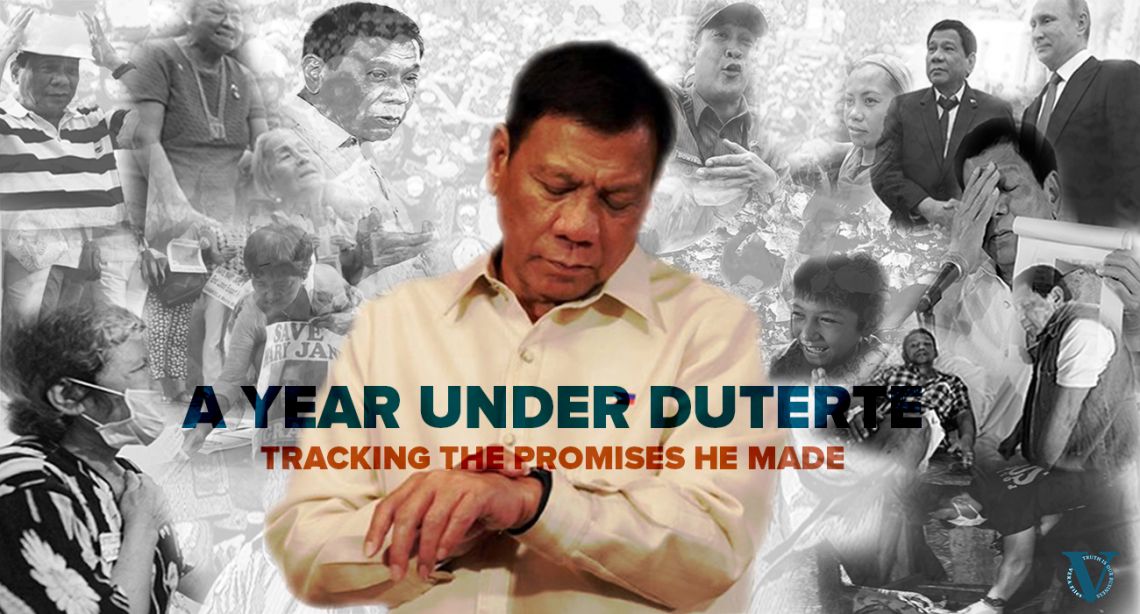President Duterte’s declaration of an independent foreign policy is consistent with the wording of the constitution, but what is new is the Philippines’ pivot to China and Russia and its deteriorating relationship with the United States, its long-standing ally and partner.
The country has also strengthened its strategic partnership with Japan, its bilateral relationship with Australia and maritime security cooperation with neighbors Malaysia and Indonesia.
On the domestic front, a bill that will lengthen to 10 years the validity of the Philippine passport is awaiting Duterte’s signature. The president’s promise to open more Consular offices to decongest Metro Manila sites and avoid queues for passport applications seems to have hit a snag. So far only one satellite office was opened, part of a project that started in 2012. And the queues in booking appointments for passport application have become longer than ever.
On strengthening relations
with neighbouring countries
| PROMISE: “We have to strengthen our coordination with Indonesia and Malaysia to suppress the kidnappings in the waters of our neighbouring countries.” |
 The joint maritime patrol by the Philippines, Malaysia and Indonesia to fight transnational crimes and terrorism in the Sulu Sea began on June 19, 2017, one year after it was conceived. The Trilateral Maritime Patrol was inaugurated in the Tarakan Naval Base in North Kalimantan, Indonesia. While this trilateral cooperation kicked off A similar Trilateral Meeting on Security with an |
On sustaining bilateral
and multilateral relationships with other nations
| PROMISE: “We also endeavor to develop and cultivate partnerships with nations sharing common interests and concerns with the Philippines; maintain and sustain bilateral and multilateral consultations and dialogues.” |
|
The President visited 17 countries and Hong Kong Two embassies have re-opened in the Philippines New bilateral consultations and dialogue |
On developing alliances
for security and fighting terrorism
| PROMISE: “We will continue to expand cooperation on human assistance, disaster response, maritime security and counter terrorism. We shall deepen security dialogues with other nations to build greater understanding and cooperation.”
|
|
President Duterte is building alliances with two His visit to Russia in May 2017 signaled that Agreements forged in Moscow covered defense Duterte’s state visit to China on October 18-21, The crisis in Marawi City enabled China to The P370-million worth of rifles and ammunitions Duterte’s visit to Japan on October 25-27, 2016 The Duterte government’s engagement with Canberra In terms of maritime security, the Philippine PCG and CCG also agreed to conduct bilateral |
On the validity of Philippine passports
| PROMISE: “On the clamor of our citizens for timely issuance of Philippine passports, the government shall work towards amendment of the 1996 Passport Law to lengthen the validity of the passports from the current five years to 10 years.”
|
 Ready and awaiting the President’s signature so it can become a law is Senate Bill 1365, which seeks to make regular passports valid for a period of 10 years. It is the full Senate version that was agreed on and adopted by the Bicameral Conference Committee last May. The bill, part of his priority legislative |
On streamlining DFA’s consular services
| PROMISE: “I have also ordered the DFA to streamline documentary requirements and passport applications and open additional Consular Offices in strategic places to decongest Metro Manila sites and avoid queues that have caused hardships and suffering to passport applicants.”
|
|
The Department of Foreign Affairs under the But even with six satellite offices to service Before they opened the first satellite office, And from 15 days processing time in 2012, it now There has been no change in the documentary requirements for passport application. |
Find out how Duterte fared in other sectors here.






